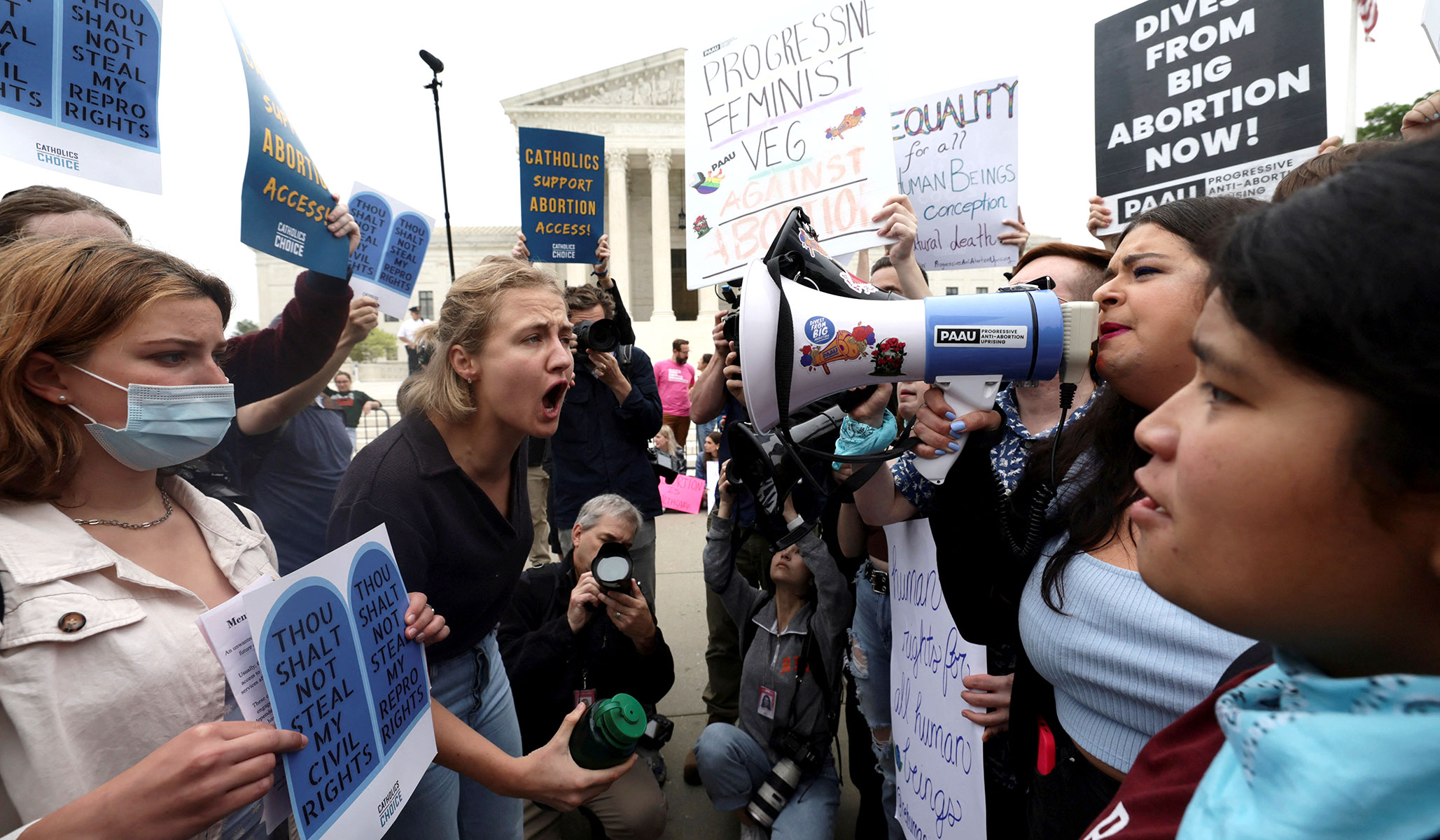


NRPLUS MEMBER ARTICLE G allup has been gauging Americans’ views on the issue of abortion since 1975, and the reputation of the organization, its longevity, and the variety of different questions it asks make it a valuable resource for examining those views.
The big takeaway from the latest survey, conducted in May and released on Wednesday, is that Americans are less supportive of a right to abortion now than they were after the Dobbs leak, in May 2022, but more supportive than they had been in the years leading up to Dobbs.
In 2021, more Americans identified as pro-choice than identified as pro-life by just a two-point margin — 49 percent to 47 percent. That margin swelled to a 16-point advantage for the pro-choice side — 55 percent to 39 percent — immediately after the Dobbs leak. Now, one year later, that advantage has been cut in half to an eight-point margin — 52 percent pro-choice to 44 percent pro-life.
What do these labels mean in terms of abortion policy? When Gallup conducted its survey after the Dobbs leak, it found a significant increase in support for the legality of abortion. That month, 53 percent of Americans said abortion should be legal under any or most circumstances, while 45 percent said it should be legal in only a few or illegal in all circumstances — numbers that had essentially flipped from 2021. But, Gallup reports, “the country is now evenly split between those favoring expansive versus restrictive access to abortion.” A slight plurality — 49 percent to 47 percent — says abortion should be legal in only a few or no circumstances.
A majority of Democratic voters has finally caught up to congressional Democrats’ stance on abortion: Fully 60 percent of Democratic voters now say abortion should be legal under any circumstances — a ten-point jump from 2021. Back in 2010, during Barack Obama’s first term, only 33 percent of Democrats said abortion should be legal under any circumstances.
Gallup has always found a big split in Americans’ views on the legality of abortion by trimester of pregnancy: They say it should be legal in the first three months of pregnancy and illegal in the last six months. In the latest survey, 69 percent of respondents say it should be legal in the first trimester — two points higher than last year. But by a 55 percent to 37 percent margin, Gallup finds, Americans say abortion should be illegal in the second trimester, which starts at the 13th week of pregnancy, and only 22 percent say abortion should be legal in the last three months of pregnancy. That finding is particularly relevant to the national debate among elected Republicans who say there should be a federal limit on elective abortion at 15 weeks of pregnancy and those who say the federal government should have no role.
While there’s a big divide in public opinion on abortion by trimester, I suspect it matters a lot more whether pollsters mention if a ban includes exceptions than whether they only mention the precise point in pregnancy at which a ban kicks in. Gallup asked voters the following question in its latest survey: “Would you favor or oppose a law that would ban abortions after a fetal heartbeat can be detected, usually around the sixth week of pregnancy?” Thirty-seven percent said they favored such a law, while 59 percent opposed it. But the Gallup question didn’t mention any exceptions. A May 2022 Fox News poll asked voters: “Recently some states passed laws that ban abortion after 6 weeks of pregnancy, except in the case of a medical emergency. Would you favor or oppose this law in your state?” (Emphasis added) 50 percent favored such a law, while 46 percent opposed it.
Of course, issue-polling is often tricky and only provides a window into how voters think, not necessarily how they will act. In 2022, pro-life ballot measures all failed, while pro-life governors who signed heartbeat bills or laws generally protecting life at conception fared well, often running far ahead of Republican Senate candidates (see Georgia and Ohio), and Republican House candidates won the popular vote by three percentage points. Those 2022 results suggest that abortion is just one issue among many motivating voters, and Gallup’s polling continues to show that those motivations are more nuanced than much of the media would have you believe.
